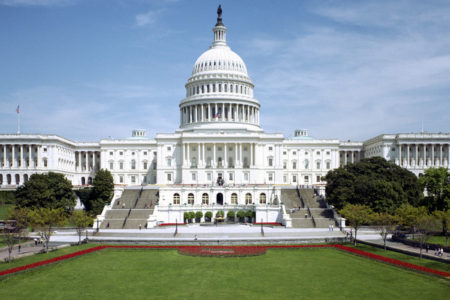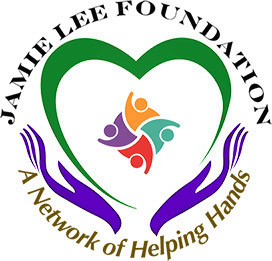
“Arguably, the most important public policies we have in the United States have come from nonprofit organizations lobbying for their causes…. These achievements may be largely attributed to the strong leadership of executive directors and board members who knew that direct service alone would not change the flawed or missing public policies that contributed to the problems their organizations were trying to alleviate.”
–David F. Arons, in Nonprofit Governance and Management
Without advocacy there is rarely change. While Jamie Lee Foundation is a 501c(3), it’s efforts to educate the public and raise awareness of the comprised federal agencies who stand in the way of Medical Marijuana would fall short without a legal plan of ACTION.
We are as committed to protecting our tax-exempt status, as well as your tax deductible donations, as we are to advocating the need for Cannabis Use Research and Education (CURE). Fortunately, we are able to do this quite well under the rules of the IRS—which we discuss below.
The rules of advocacy allow us to send a petition to members of Congress, urging for “non-specific legislation” to be passed that is in harmony with state laws already passed. It also allows us to contact state legislators in states that have legalized Marijuana, and urge them to contact their federal representatives requesting them to pass federal legislation that is supportive of their state Marijuana laws.
Jamie Lee Foundation’s CURE petition addresses the first part of this action plan. Reaching out to state legislators through snail mail and email has already been planned and budgeted at $80,000.

Below is IRS language regarding advocacy and opinions by various legal experts.
Regarding lobbying, the IRS has stated:“In general, no organization may qualify for section 501(c)(3) status if a substantial part of its activities is attempting to influence legislation (commonly known as lobbying). A 501(c)(3) organization may engage in some lobbying, but too much lobbying activity risks loss of tax-exempt status.
Legislation includes action by Congress, any state legislature, any local council, or similar governing body, with respect to acts, bills, resolutions, or similar items (such as legislative confirmation of appointive office), or by the public in referendum, ballot initiative, constitutional amendment, or similar procedure. It does not include actions by executive, judicial, or administrative bodies.
An organization will be regarded as attempting to influence legislation if it contacts, or urges the public to contact, members or employees of a legislative body for the purpose of proposing, supporting, or opposing legislation, or if the organization advocates the adoption or rejection of legislation.
Organizations may, however, involve themselves in issues of public policy without the activity being considered as lobbying. For example, organizations may conduct educational meetings, prepare and distribute educational materials, or otherwise consider public policy issues in an educational manner without jeopardizing their tax-exempt status.”
The American Bar has stated that:“lobbying, under federal tax law, is a specifically defined activity. Just having a conversation with a legislator is not automatically lobbying. Lobbying is just one form of advocacy that an organization may engage in to achieve its particular goals and serve its constituencies. Other forms of advocacy include educating policymakers and the public about broad social issues, encouraging people to register to vote, organizing communities, educating voters about candidate positions, litigating, and many other activities.”
The Center for Non-Profits’ position on lobbying is very extensive and clearly described below.
Direct lobbying — In general, any attempt to influence any legislation through communication with a legislator, an employee of a legislative body or other government official, which:
(1) refers to specific legislation; and
(2) reflects a view on such legislation.
Grassroots lobbying — any attempt to influence any legislation through an attempt to affect the opinions of the general public or any segment thereof. A grassroots lobbying communication is one which:
(1) refers to specific legislation;
(2) reflects a view on that legislation; and
(3) encourages the recipient to take action with respect to the legislation, either by
(a) directly urging the recipient to contact legislators or other government officials in order to influence legislation;
(b) including the address, phone number or similar information about a legislator or government official;
(c) providing a petition, postcard or other prepared message to send to a legislator or government official in order to influence legislation; or
(d) identifying one or more legislators who will vote on the legislation as opposing the organization’s view; being undecided; being the recipient’s representative in the legislature; or being a member of the legislative committee that will consider the legislation. Encouraging the recipient to take action does not include naming the main sponsor(s) for the purposes of identifying the legislation.
Any activity that does not meet the above criteria is regarded as advocacy, which charities may conduct without limit. The IRS does not view attempts to influence administrative rules, regulations or other executive branch actions as lobbying. Be advised, however, that if your organization engages in these activities, whether at the federal or state level, it may be subject to other federal and/or state registration and reporting requirements (see below).
Some Examples of Advocacy and Lobbying (IRS Definitions)
It’s easy for an organization that is trying to comply with the law to become confused about whether its activities are direct lobbying, grassroots lobbying or advocacy. The IRS has provided some examples of each in order to provide additional clarity with respect to its lobbying regulations of public charities. The following examples are abbreviated versions of those issued by the IRS.
Advocacy
- Organization M writes to its Congresswoman requesting that she contact an administrative agency regarding a proposed regulation. The communication to the Congresswoman is not lobbying because administrative rules are not “legislation” as defined in and limited by the IRS lobbying regulations.
- Organization Z prepares a paper on a particular state’s environmental problems. The paper does not reflect a view on any specific pending legislation nor on any specific legislative proposal which Z supports or opposes. Z’s paper is not a lobbying communication, even if it is sent to a legislator.
- Organization B researches, prepares and prints a code of standards booklet of minimum safety requirements for electrical wiring. B sells the booklet to the public and it is widely used by professionals in the installation of electrical wiring. Occasionally, B lobbies state legislators for passage of the code of standards for safety reasons. Because the primary purpose of creating the code was to promote public safety and the standards were specifically used in a profession for that purpose, separate from any legislative requirement, the research, preparation, printing and public distribution of the code of standards are not lobbying expenditures. Costs, such as transportation, photocopying, and other similar expenses, incurred in lobbying state legislators in support of the code are expenditures for direct lobbying communications.
- Organization R’s monthly newsletter contains an editorial column that refers to and reflects a view on specific pending bills, but does not encourage readers to take action with respect to these bills. R sends the newsletter to 10,000 nonmember subscribers, including Senator Doe. The editorial column in the newsletter sent to Senator Doe is not a direct lobbying communication because the newsletter is sent to Senator Doe in her capacity as a subscriber rather than her capacity as a legislator.
- A pamphlet distributed by organization L discusses the dangers of drugs and encourages the public to send their legislators a coupon printed with the statement, “I support a drug-free America.” The term “drug-free America” is not widely identified with any of the many specific legislative bills regarding drug issues. The pamphlet does not refer to any of these bills, nor does the organization support or oppose a specific legislative proposal. The pamphlet is not a grassroots lobbying communication.
- In each edition of its newsletter, Organization E, an environmental organization, routinely summarizes and reports on the status of environment-related bills pending in Congress. The newsletter identifies each bill by a bill number and the sponsor’s name. Although the summaries and status reports refer to, and often reflect a view on, specific legislation, they do not encourage readers to take action with respect to any of the bills. The summaries and status reports are not grassroots lobbying communications.


